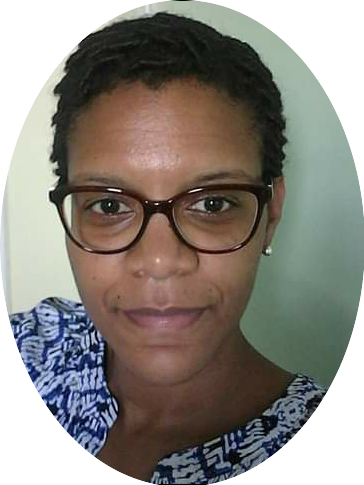To Clearly See the Task That Lies Before Us
Posted: Apr 27, 2020
This instalment of Reflections in the time of COVID-19 features Debbie-Ann Chambers of the University of the West Indies at Mona, Jamaica
The COVID-19 pandemic ought to snatch us from whatever lingering illusion there is of a “post-colonial” world. The events are revealing for anyone willing to pay attention. For example, in my own country, Jamaica, a small island nation in the global south, working class and poor black people are squeezed together, unmasked, in lines for bread and Western Union remittances. The fear of going hungry outweighs the fear of viral infection.
Here, we have a saying— “donkey say the world not level.” The saying is true. Those who were already “competing” from marginalized positionalities are at even more risk of “falling” on uneven ground. The donkey is not deluded after all, but wise about certain truths, like the legacy of colonization. This is a legacy fraught with structural violence and various dehumanizations; a legacy that pervades our current public health system, our political and economic system, and for those of us who are psychologists, even our practices.
Perhaps I do not sound hopeful. The truth is, at times I am not. Yet, at other times, I remember Paulo Freire (1994) who noted that hope is not an act of wishful thinking. It is commitment to struggle, to looking for the opportunities for transformation, no matter the obstacles. So, the question is—where does my hope lie? It lies in the creativity of my people, who sing, dance, and “turn hand and mek fashion” (make something out of nothing). I have seen this modelled beautifully in the anti-colonial group psychotherapeutic models of Professor Frederick Hickling (2007), a black Jamaican transcultural psychiatrist and a mentor with whom I work. The resilience and the poetry of resistance that emerge from this group work are profound. My hope is also in ancestral wisdom—the same wisdom that taught me to put clothes out on a sheet of zinc for the sun to “beat” (interestingly, scientists are finding curative effects of heat and humidity on the virus). Ironically, this is the wisdom colonization labels “backward.”
To fully commit to the hope for liberation, we must engage in authentic dialogue with each other – specifically, dialogue that negates dualism and catalyses psychic centrality (Hickling et al., 2010), that is, the collective wisdom of the group. Dialogue helps us to remember the colonial masters’ methodologies and to recall ancestral wisdom erased by “progress” and “development.” Dialogue is what will resurrect us from this pandemic, changed for the common good.
The opportunity to share this blog is one step in my commitment to the struggle: an opportunity for transformative dialogue despite our many obstacles, including the threat to despair. Another step is making room for spaces of engagement with others from all walks of life in Jamaica and outside of Jamaica. Isn’t this what a psychologist ought to do? In our “post-colonial” illusions, we can lose sight of the need for decolonization, but our hope for a liberated future post-COVID-19 depends on our ability to clearly see the task that lies before us.
References
Freire, P., Freire, A. M. A., & Freire, P. (1994). Pedagogy of hope: Reliving Pedagogy of the oppressed. New York: Continuum
Hickling, F.W. (2007) Psychohistoriography: A Postcolonial psychoanalytic and psychotherapeutic model. Mona Jamaica CARIMENSA Press University of the West Indies
Hickling F.W., Guzder J., Robertson-Hickling H., Snow S., and Kirmayer LJ. (2010) Psychic Centrality: Reflections on Two Psychohistoriographic Workshops in Montreal. Transcult. Psychiatry, 47; 136-158
Author Bio

Debbie-Ann Chambers, Ph.D. is a counselling psychologist working in Jamaica at the University of the West Indies (Mona). She is committed to the liberation psychologies, to the love of poetry, and to the messy process of her own decolonization.
